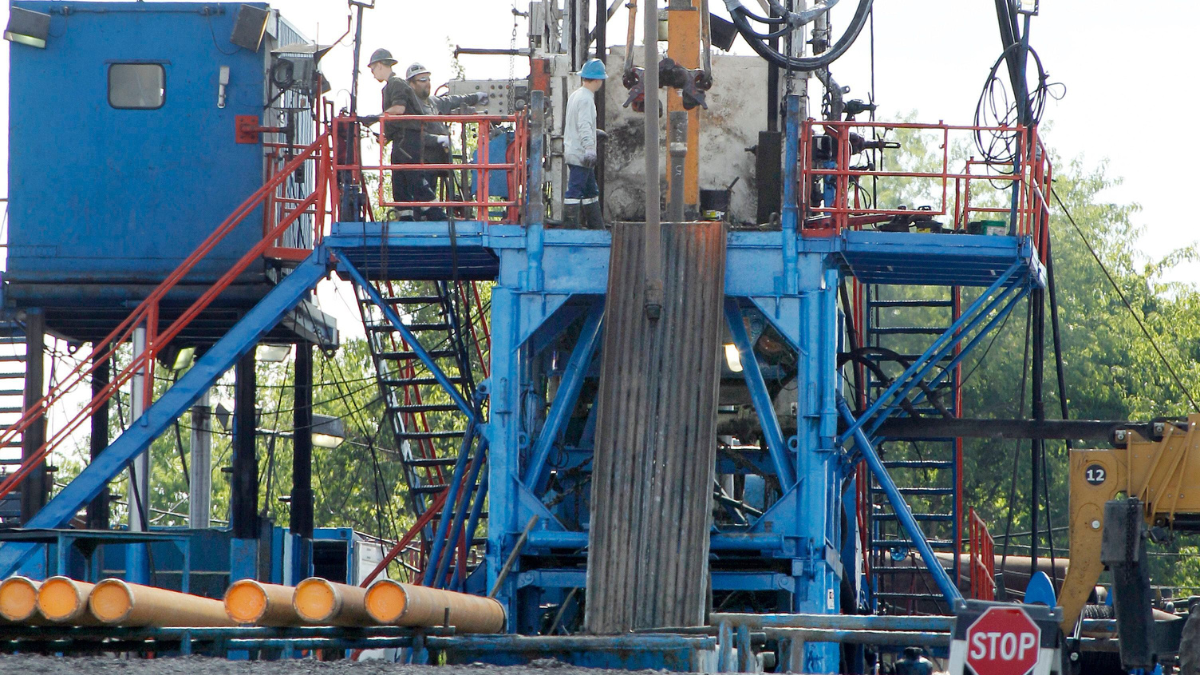State Senators Mike McKay (R) and William Folden (R) are co-sponsors. Co-sponsors do no submit testimony or participate in the hearing. The bill was introduced on Feb. 3 and is currently in committee. It will be discussed at the Senate Education, Energy and the Environment Hearing on Feb.27th.
State Senators Mike McKay (R) and William Folden (R) are co-sponsors. Co-sponsors do no submit testimony or participate in the hearing. The bill was introduced on Feb. 3 and is currently in committee. It will be discussed at the Senate Education, Energy and the Environment Hearing on Feb.27th.

This article was written by Claire Sullivan for “The Garrett County Republican”
OAKLAND — Republican State Senator Steve Hershey has submitted a bill to allow hydraulic fracking in the state of Maryland.
State Senators Mike McKay (R) and William Folden (R) are co-sponsors. Co-sponsors do no submit testimony or participate in the hearing. The bill was introduced on Feb. 3 and is currently in committee. It will be discussed at the Senate Education, Energy and the Environment Hearing on Feb. 27th. If the bill were to pass, fracking’s legalization would be effective Oct. 1, 2025.
Maryland was the first state to successfully pass a legislative, state-wide ban on hydraulic fracking in 2017.
“I have always been consistent concerning my support of safe fracking as Allegany County Commissioner, Delegate and now as a Senator,” said co-sponsor McKay. “The poor cannot afford to live in Appalachia Maryland even if they can find affordable housing.”
McKay stated that the Governor, Senate President and the Speaker have asked for energy policy to be addressed.
“They have acknowledged that all forms of energy can be used to solve the problem,” McKay added. “Senator Hershey [the sponsor of the bill] brought this to my attention during a Republican Caucus meeting during the third week of the 2025 session as we
discussed subjects in this year’s session.” McKay also said that the Allegany County Commissioners asked him to put in this bill in December, but he declined “ … due to the possibility of it being passed.”
“No company will come to Maryland to drill because of the return on investment,” McKay stated.
Fracking is a method used to extract natural gas and oil from shale. The controversial method forces water, sand, and a mix of chemicals into horizontally drilled wells, which cracks the shale and releases gas and oil.
The controversy surrounding fracking involves not only environmental damage, but health risks to those in communities where fracking is happening. Fracking is known to cause contamination to well water and damages infrastructures.
When the bill was revealed to have made it to committee, it led to a bit of an uproar locally and throughout the region.
Mark Stutzman, President of Engage Mountain Maryland from 2015-2022, took time to elaborate on these risks. He said the bill is a “backhanded slap to the face for not only Garrett County citizens but the entire General Assembly of Maryland.”
“Groups like the Environmental Health Project in Pennsylvania share many stories of people ending up with contaminated well water and various health issues, particularly among developing children living near well sites. Studies link natural gas development to low birth weights, bloody noses, asthma, lymphoma, and childhood leukemia,” Stutzman said. “The health issues are broad and attributed to ongoing gas emissions, chemicals used to extract the gas, and diesel exhaust from the heavy equipment needed during development.”
According to Stutzman, the harsh realities of fracking were ignored back in 2017. “Nothing has changed with the gas drilling process to make it a good choice for Maryland’s unspoiled mountains,” said Stutzman. “McKay is tone-deaf and outmoded regarding energy policy. There are multiple avenues and well-recognized technologies that take the environment and efficiency into account.”
Stutzman said that the initial fracking ban in Maryland was the result of years of effort and research from both local and national organizations that revealed “undeniable truths” of the practice.
“The Western Maryland Delegation, at that time, falsely told fellow legislators in Annapolis that the people of Garrett County wanted fracking,” Stutzman added. “It wasn’t until outraged citizens visited Annapolis in person to express strong opposition to fracking that the tide began to change. It’s very difficult for citizens to be heard when they are at odds with their elected officials, but time and persistence prevail.”
Stutzman also touched on the notion of job creation surrounding fracking. Drilling is a specialized, constantly traveling practice. Teams move from site to site rather than employing unskilled residents living in the area. When a well has been drained of its resources, it is abandoned, with occasional inspections.
“When visiting gas sites in West Virginia, we had full access to the completed well pads,” he said. “There was no locked gate preventing people from wandering around. Wildlife can also co-mingle with well pads, making hunting game for food hazardous.” Stutzman also added that there is a risk of deterring vacation traffic looking to enjoy the wilds of Maryland.
“The tourism economy, vacation rentals, and real estate around Deep Creek Lake generate over 60 percent of the county’s tax base,” Stutzman said. “Should that be jeopardized, this county will be in serious trouble. Our most significant deficit is full-time residents. Garrett County’s population has stagnated for decades, contradicting a growing economy.
“Displacing our tourists and Deep Creek Lake real estate with fracking could cause a complete collapse of the county’s revenue stream. There is no other source of income of that magnitude to fall back on. Fracking and tourism don’t mix, making the decision about fracking simple.”